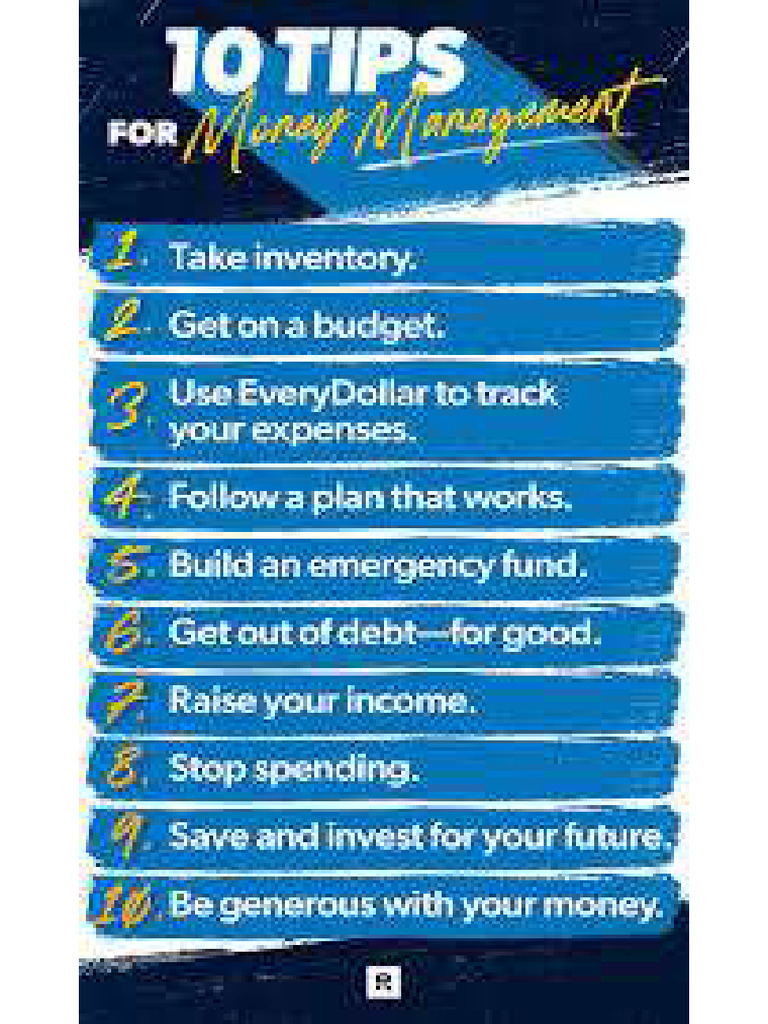Are you looking to gain control over your finances? Managing money effectively can feel overwhelming, but with the right strategies, you can achieve your financial goals and maintain peace of mind. Here are some impactful money management tips that can help you start your journey towards financial freedom. Whether you are saving for a big purchase, trying to get out of debt, or simply want to make your money work harder for you, these tips can make a meaningful difference.
Understanding the Basics: Money Management Tips
To begin with, it’s essential to understand what money management entails. Simply put, it’s about keeping track of your income and expenses to ensure that you are living within your means and preparing for future needs.
Creating a Budget: One of the Best Money Management Tips
A budget is the cornerstone of any successful money management strategy. By creating a budget, you can track where your money goes each month. This practice can prevent you from overspending and help you recognize areas where you can cut back. Here’s how to create a budget:
- Track Your Income: Start by determining how much money you earn each month from all sources.
- List Your Expenses: Identify all your fixed and variable expenses, such as rent, utilities, groceries, and entertainment.
- Set Spending Limits: Based on your income and expenses, set limits for each category.
- Review and Adjust: Regularly review your budget to ensure you are staying on track and make adjustments as needed.
Visualize Your Financial Goals
Money Management Tips: Inspirations for Your Financial Journey
This informative image presents an engaging overview of the essential tips for managing your finances. By visualizing your goals, you are more likely to stay committed to your money management strategies. Seeing your goals can motivate you to save and invest wisely.
Emergency Funds: Essential Money Management Tips
One important tip in money management is to have an emergency fund. An emergency fund acts as a financial buffer when unexpected expenses arise, such as medical emergencies or urgent car repairs. Here’s how you can build one:
- Set a Goal: Aim to save at least three to six months’ worth of living expenses.
- Aim for Small Contributions: Start by saving a small amount regularly until you reach your goal.
- Keep It Accessible: Store your emergency fund in a savings account where you can access it easily when needed.
Smart Spending Strategies: More Money Management Tips
Effective money management isn’t just about saving; it’s also about smart spending. Here are some tips that can help you maximize your purchasing power:
Evaluate Your Needs vs. Wants
Before making any purchases, take a moment to evaluate whether you really need the item or if it’s just something you want. This discipline can help you avoid impulse purchases that can derail your financial goals.
Take Advantage of Discounts and Coupons
Using discounts and coupons when shopping is a straightforward way to save money. Many retailers offer loyalty programs, so be sure to join them. You might find that you can reduce your overall spending significantly.
Comparison Shop
Don’t make a purchase on the first item you find. Take the time to compare prices from different retailers to ensure you’re getting the best deal. Online shopping makes this process easier than ever!
Debt Management: Key Money Management Tips
Managing debt is one of the most crucial aspects of financial management. If you have outstanding debts, it’s vital to tackle them head-on. Here are some strategies to consider:
Prioritize High-Interest Debt
When dealing with various debts, it’s often best to pay off high-interest debt first, such as credit cards. This method saves you money in the long run by reducing the amount you pay in interest.
Consider the Snowball Method
The snowball method involves focusing on paying off the smallest debts first while making minimum payments on larger debts. This strategy not only helps you get rid of debts sooner but also provides motivation as you achieve small wins.
Investing for the Future: Expanding Your Money Management Tips
Once you’ve established a budget and an emergency fund, it’s time to consider growth. Investing is a powerful way to build wealth over time. Here are vital money management tips for investing:
Start Early with Retirement Accounts
The earlier you start investing in retirement accounts like 401(k)s or IRAs, the more your money can grow. Take advantage of any employer match; it’s essentially free money!
Diversify Your Investments
Don’t put all your eggs in one basket. Spread your investments across different sectors and asset classes to minimize risk and maximize potential returns.
Stay Educated: Continuous Money Management Tips
Knowledge is power when it comes to money management. Keep educating yourself about financial management strategies and tools. Attend workshops, read books, and listen to podcasts that cover financial literacy.
By continually learning, you also stay motivated and can adapt your strategies to changing financial landscapes.
Review and Reflect: Essential Steps in Your Money Management Journey
Lastly, make it a habit to review your financial progress regularly. Reflecting on your budget, expenditures, savings, and investments will help you understand what is working and what needs adjustment. Set aside a time each month to go over your finances. This practice not only helps in maintaining control over your money but also encourages a proactive approach to future financial decisions.
Embracing these money management tips can transform your financial habits and set you on a path toward achieving your financial goals. Remember that the journey involves patience, persistence, and continuous learning—so start today!



